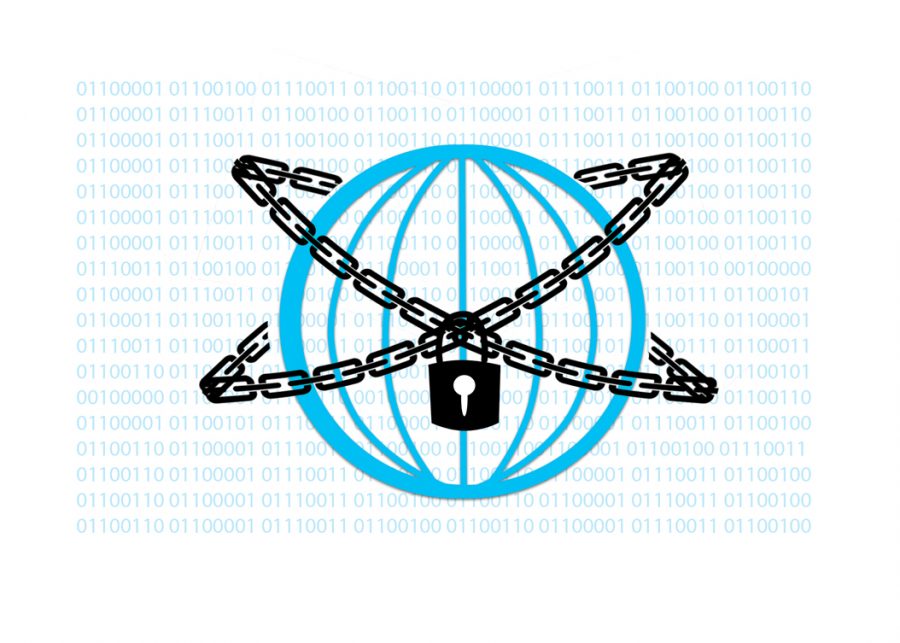With fewer than two weeks until Inauguration Day, President-elect Donald Trump has failed to calm the worries of his detractors about what the next four years will hold.
His cabinet appointees certainly haven’t helped. Some of his selections are wholly opposed to the agency they’ve been appointed to head, including EPA appointee Scott Pruitt — who has called the rule of the EPA “unlawful and overreaching” — and Trump’s picks for the Federal Communications Commission, Jeff Eisenach and Mark Jamison.
Eisenach and Jamison, formerly employed by Verizon and Sprint, respectively, have been critical of the Obama administration’s FCC, particularly about the principle of net neutrality on the internet.
Net neutrality is complicated, but it’s essentially the principle that all data should be treated equally, regardless of who creates it. The FCC’s current rules on net neutrality prohibit internet service providers from engaging in three behaviors: blocking, throttling and paid prioritization. In other words, ISPs aren’t allowed to block access to legal content, to reduce quality of access to the internet arbitrarily or to create “fast lanes,” where those who can pay get better and faster access than those who don’t.
This principle is critical to a free and open internet, which has been the platform for the online innovations that have shaped our modern world.
Treating all data equally is the reason Facebook went from a small startup created by a Harvard sophomore to a multi-billion dollar corporation and an integral part of how people worldwide experience the internet. Similarly, YouTube would not be the massive creative frontier it is without the principle of net neutrality — anyone with internet access can post a video, and the site is free for everyone to view.
Both Eisenach and Jamison have been critical of the FCC’s 2015 ruling in favor of net neutrality, with Eisenach denouncing it as “crony capitalism, pure and simple” in a 2014 column for the American Enterprise Institute. Verizon, Eisenach’s former employer, spent $15 million in 2012 lobbying against net neutrality, joining such companies as Google, AT&T and Comcast.
If the FCC’s net neutrality regulations are dismantled, it’s difficult to predict how ISPs will behave, but there are a few potential scenarios.
The first possibility is that nothing changes. Daniel Lyons, a law professor at Boston College, considers net neutral practices “good business” for ISPs, even if the rules are removed.
“Any company that would alter net neutrality in an obvious way would suffer consequences,” Lyon said.
This makes some sense. If Comcast stopped its net neutral practices and created a fast lane where those who pay more get faster access but Verizon and AT&T remained net neutral, it would follow economically that Comcast customers would just hop over to the competitors offering the same service but charging less.
The issue that lies with the “status quo” scenario is that not everyone in America can choose their ISP, as large areas in the United States receive internet from relatively few ISPs. The FCC estimated in 2013 that 67 percent of Americans have two or fewer choices of ISP, and 28 percent have just one choice.
Pittsburgh is actually relatively competitive when it comes to broadband providers, but for most residents, there are still only two available networks offering speeds above 100 mbps: Comcast and Verizon. Less competitive states, such as Louisiana and Oklahoma, only have one ISP — Cox — with speeds over 100 mbps available to a majority of residents. Were Cox to stop net neutral practices, many in those states would be forced to take a hit to their internet quality or else pay more.
Because of this, a more likely outcome of removing net neutrality regulations is that ISPs will take advantage of deregulation and begin charging for faster internet service. After all, these same companies already do something similar with our cable TV, offering some more channels than others.
With rules against blocking, throttling and paid prioritization of data lifted, and with little competition in many areas, ISPs will have the ability to determine what content its consumers can access and how fast they can access it. They could create tiered plans, where certain websites are available as standard features, and access to other websites would cost more.
Whichever scenario plays out, many of us will feel the effects should ISPs choose to reject net neutral practices.
Businesses including Netflix and Amazon can pay for premium internet streams but will likely pass those increased costs to their customers. Small businesses without the capital to access these premium streams will be forced onto congested streams, affecting their page views and online sales. Many people will simply be priced out of usable internet service.
With the internet becoming more and more necessary to apply for college and employment, especially for individuals with disabilities, doing away with net neutrality laws is simply unacceptable. Fortunately, there is a way to fight this and plenty of precedent.
In 2011, four million emails to members of Congress stopped the Stop Online Piracy Act and the Protect IP Act in their tracks. These controversial proposals would have done something to the internet similar to the end of net neutrality. The first would have cracked down on illegal use of copyrighted material on the internet, while the second would have disabled access to websites accused of piracy.
If past experience tells us anything about what should be done to protect net neutrality, it’s that contacting your representatives is a vital step in keeping the internet — one of humanity’s greatest achievements — fair.



